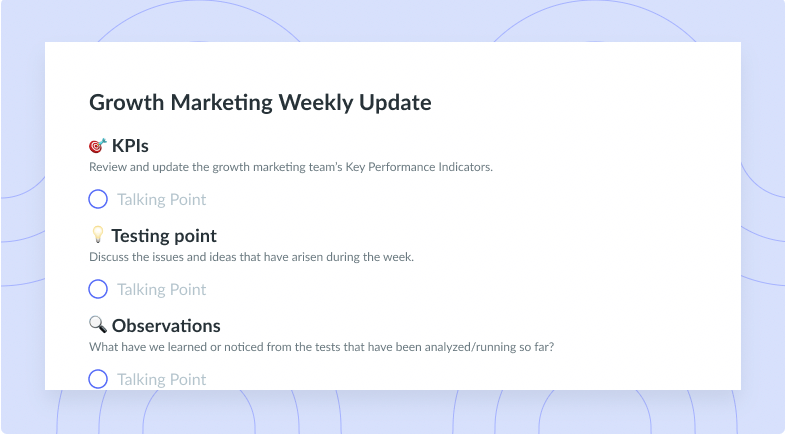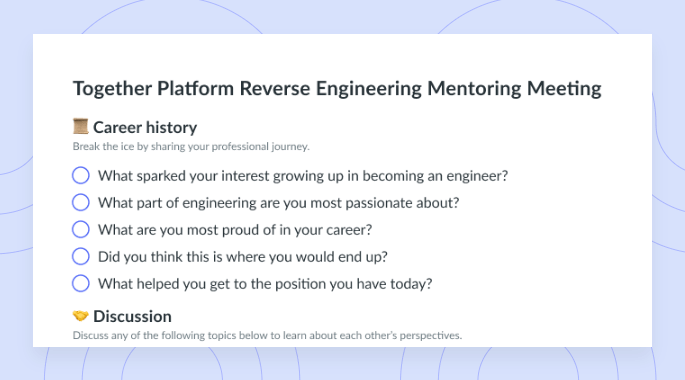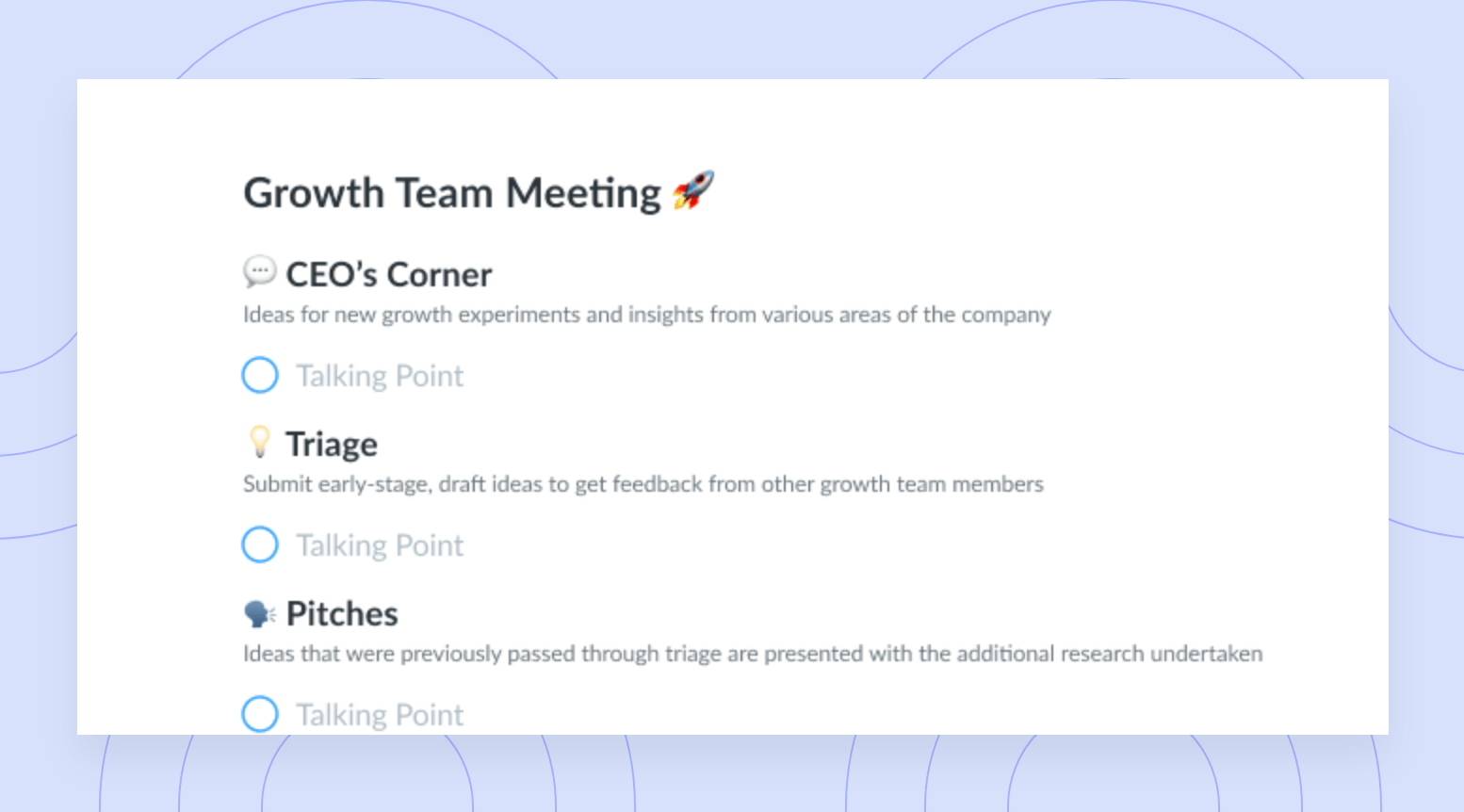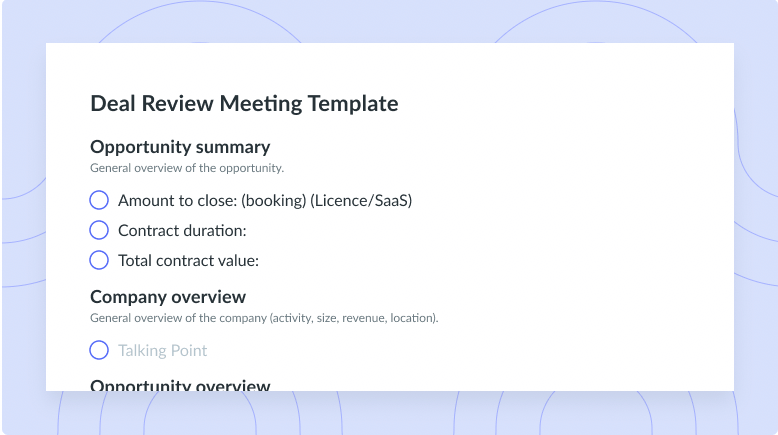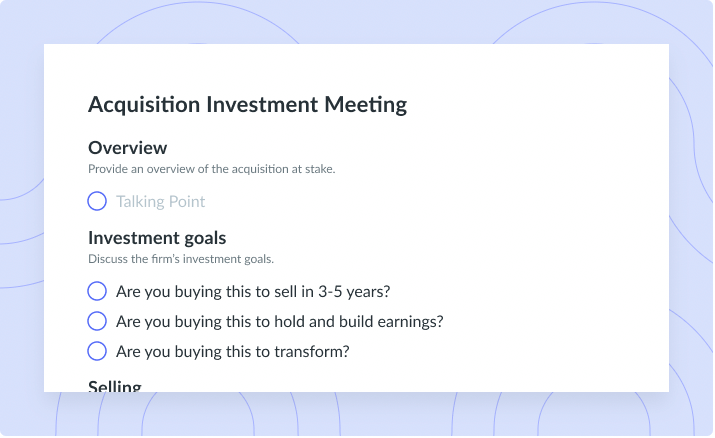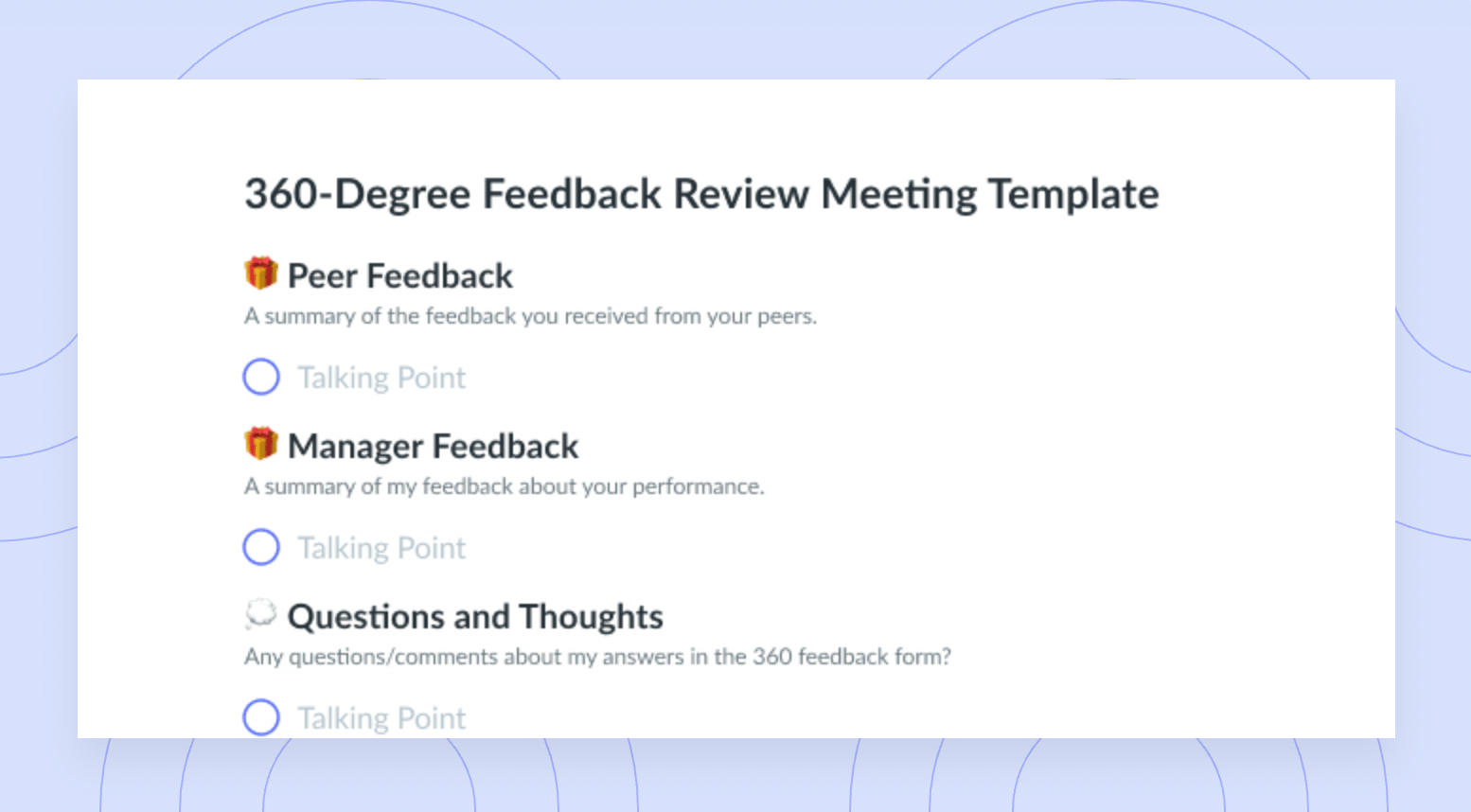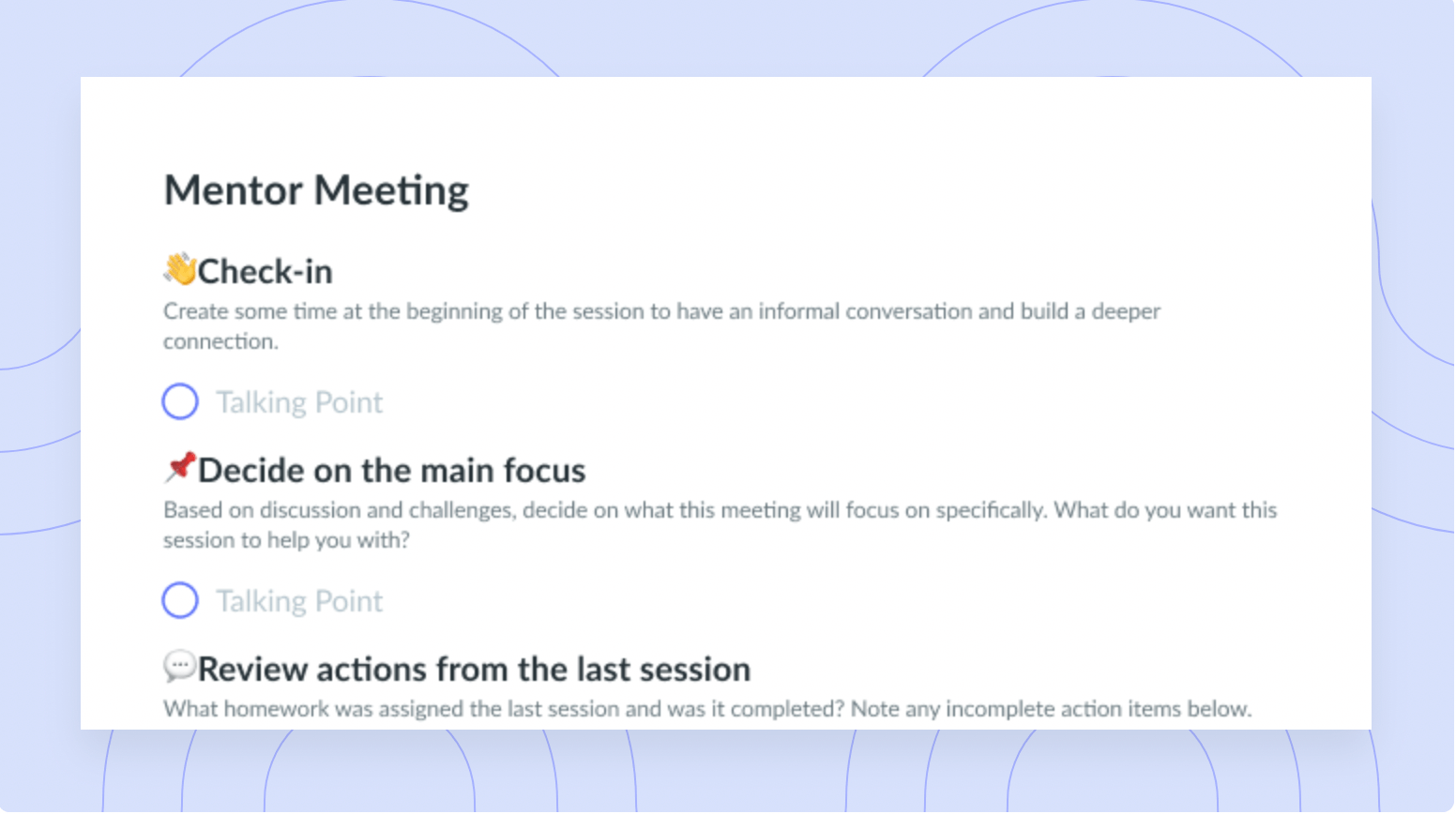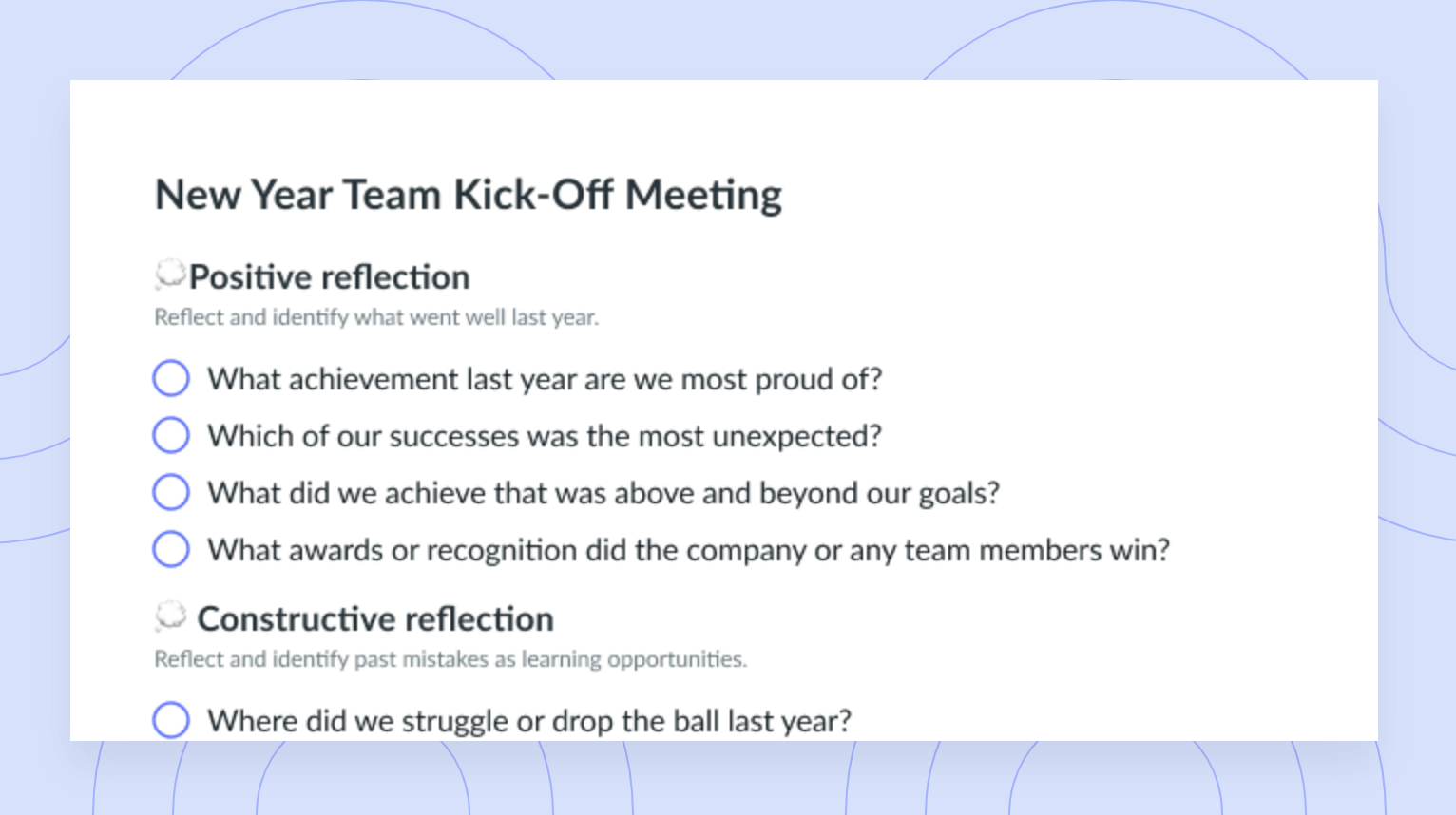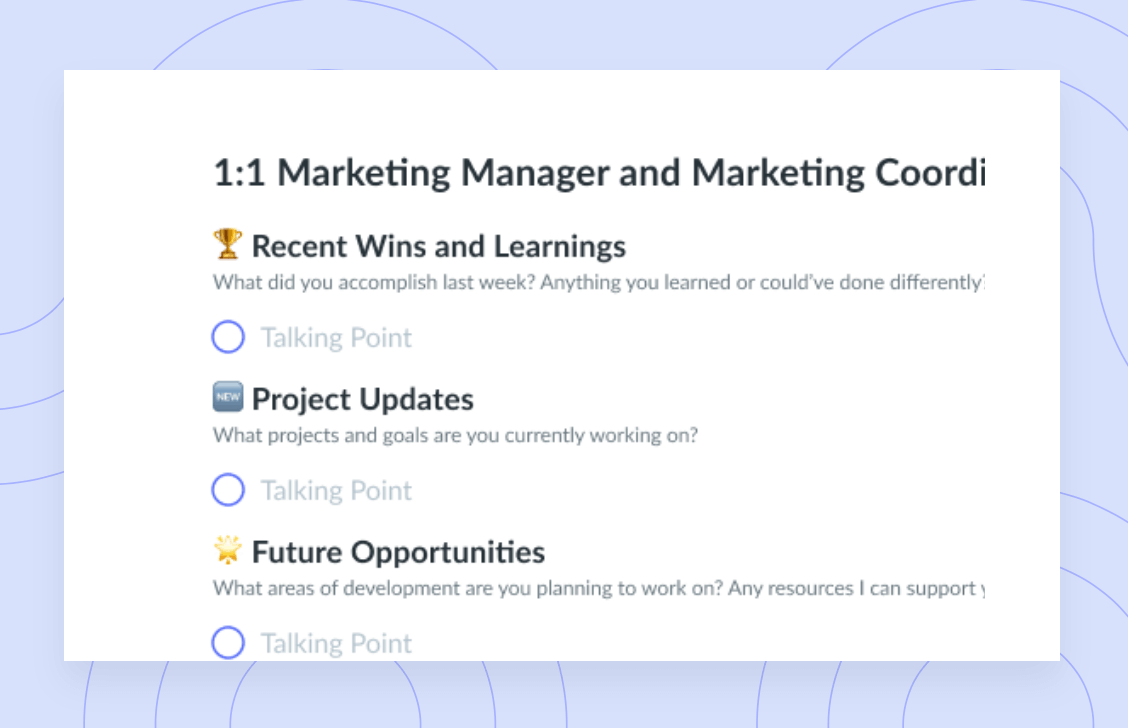15 Ways to Develop a Growth Mindset
Anyone and everyone can develop a growth mindset with the right approach and attitude. Learn more about what a growth mindset is.
A growth mindset, which was originally an academic concept used with educators to encourage stronger academic performances, has now made its way into the business world. Notably, the CEO of Microsoft, Satya Nadella applied this powerful concept to the company as it struggled following a decade of flat growth until 2014 under the previous CEO’s direction (London Business School, 2018). Now, Microsoft’s share price has more than tripled.
Existing psychological research has shown that those who adopt a growth mindset are more likely to prosper when faced with difficulty and continue to improve thereafter, whereas individuals who back down from challenges and do not succeed in meeting their potential are more likely to have a fixed mindset (Yeager et al., 2020).
This article is going to provide a comprehensive understanding of what a growth mindset is and 15 tactical ways to work towards developing your own growth mindset so you can feel confident knowing that you will flourish in the face of any kind of adversity.
What is a growth mindset?
Put simply, a growth mindset is a conviction that personal characteristics and skills can be continuously developed, as opposed to a fixed mindset, where the conviction is that our characteristics, skills and abilities are steadfast (Yeager et al., 2020). Different types of mindsets can either contribute to or take away from our well-being. When individuals believe in themselves, they acknowledge that they are in constant change and have the ability to learn and grow through diverse situations. This acknowledgment of change means there is always something to look forward to because we believe in our own personal evolution.
When things aren’t fixed, there’s always room for improvement. This capacity to improve can be applied at work, in our personal relationships and in academic contexts. Adopting a growth mindset means acknowledging that things can always change for the better– although perhaps not overnight–with enough hard work and perseverance.

Track your progress
Document your goals and progress in Fellow’s private streams to see just how far you’ve come!
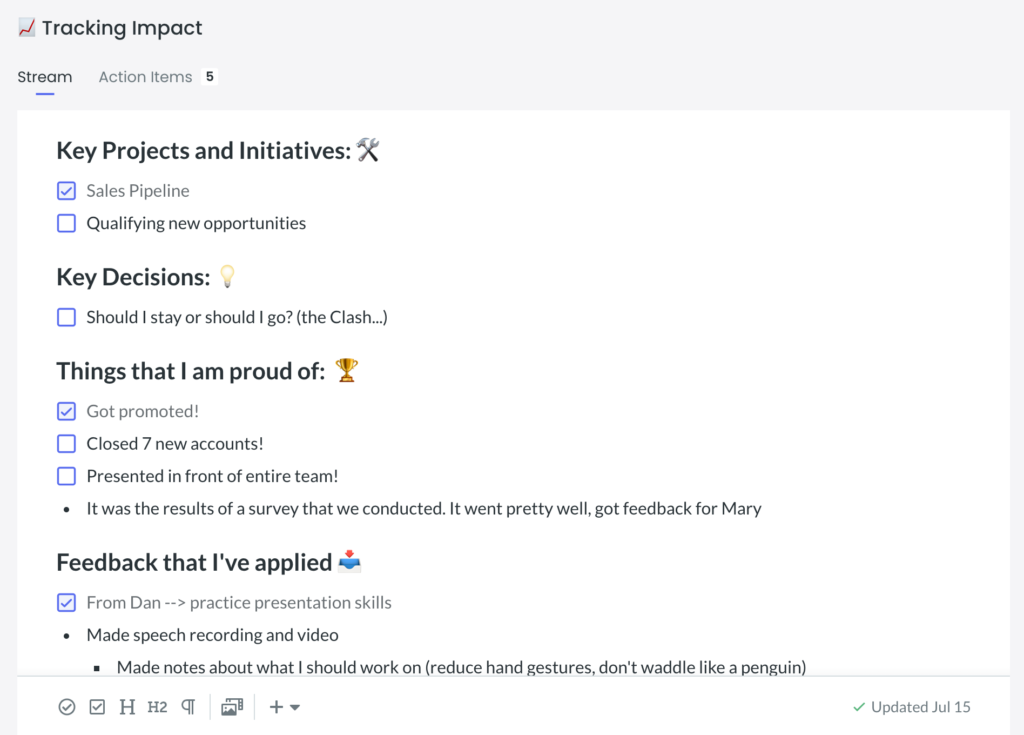
15 ways to develop a growth mindset
- Know the why
- Find examples
- Redefine failure
- Set realistic goals
- Notice your self-talk
- Set new challenges
- Stop seeking approval
- Celebrate big and small success
- Notice others’ accomplishments
- Add ‘yet’ to your vocabulary
- Value the journey
- Emphasize growth over speed
- Reflect often
- Learn from others
- Take ownership
1 Know the why
Firstly, and most importantly, think about why you actually want to develop a growth mindset. What in your life is motivating you to change? What benefits do you anticipate from making these changes? Understanding the benefits of changing is going to allow you to truly focus on what motivates you during more challenging times so you come out of these situations stronger than ever.
2 Find examples
Think about chatting with family, friends, and co-workers about adopting a growth mindset. If anyone you know has been working on developing this mindset, they will likely have some valuable insights they can share with you. If you’re not sure of anyone who is working on developing a growth mindset, turn to LinkedIn or Twitter–there is a whole online community of individuals looking to develop a growth mindset, and connecting with them can help support you along your own journey.
3 Redefine failure
Rather than looking at failure as something negative, start looking at it as a necessary process of learning. Failure redirects us back onto the path that we need to follow to achieve our successes. Failure is inevitable in the process of learning and brings us that much closer to our achievements. Any worthwhile successes require that we take a step backwards before we can continue moving forwards, and expertise is never developed without slipping a few times along the way.
4 Set realistic goals/set yourself up for success
In order to keep yourself motivated and on track, it’s important that you set realistic goals. While it’s great to be ambitious, you need to make sure that you’re setting goals that you can actually achieve. Recognizing goals that you can truly achieve sets you up for success and actually reaching these goals, which will further encourage you. As you continue to achieve your goals, you can set more and more ambitious end goals to challenge yourself, but it’s important to start small and build from there.
5 Notice your self-talk
The way we speak to ourselves is really important. Notice if you find yourself saying things like “I’m not good at this” or “This is beyond my skill set”. We’re only truly capable of what we believe we’re capable of. If you engage in self-limiting thoughts, it’s going to be very difficult to achieve your goals. You have to be your own hype person and cheer yourself on. You have to believe that you can so that you will.
6 Set new challenges
When you begin to feel comfortable, be sure to set new challenges for yourself. Complacency is the enemy of growth. Keep pushing yourself to move outside of your comfort zone. The chances are, if you’re somewhat uncomfortable, you’re likely learning and growing. Try to see challenges as learning opportunities rather than setbacks. Each time you overcome a challenge, you grow a result. The more difficult the challenge, the greater the reward.
7 Stop seeking approval
Caring about what others think of us or of our goals can inhibit the development of a growth mindset. Focus on your own self-acceptance. When we are happy with ourselves, we care less about what others think, because the most important opinion of ourselves is our own. While people come and go from our lives, you will always be the one supporting and cheering yourself on at the end of the day, so make sure you believe in yourself and your own abilities. The only competition that exists is yourself.
8 Celebrate big and small success
No matter how small your successes, be sure to celebrate them. While smaller achievements may not seem like a big deal, a multitude of small achievements truly make a huge impact. You can think about something you enjoy as a way to reward yourself for your small successes, or for your big ones. Maybe small successes warrant a nice coffee and treat, whereas a bigger success could mean organizing an outing with colleagues or your family and friends.
9 Notice others’ accomplishments
It’s just as important to celebrate other people’s successes as it is to celebrate your own. Celebrating your colleagues’ successes creates a supportive environment and encourages others to continue working on their growth mindset so they can reach their goals as well.
Moreover, you can learn from other people’s successes by showing an interest in how they achieved their success and how it may add value to your journey to achieving your own goals.
10 Add ‘yet’ to your vocabulary
Instead of saying, “I’m not good at this,” try, “I’m not good at this yet.” None of us are born being amazing at something. Competencies and skills take time to acquire and build. Saying “yet” at the end of your more critical self-talk is going to convince you and those around you that it’s only a matter of time before you improve and grow.
11 Value the journey
Often the process of learning and working towards something is where the most valuable lessons are learned. Of course, achieving a goal is amazing, but the obstacles and challenges that had to be faced along the way are of equal importance. Be patient with the time it takes to attain the goals that you’ve set. Trust that successes happen exactly when they’re meant to–there’s no ticking time bomb to be worried about. Things will happen for you when they’re meant to.
12 Emphasize growth over speed
Rushing things is one of the worst habits that we can adopt, and it goes completely against acquiring a growth mindset. We fail to notice important details and we lose the opportunity to learn important lessons when we rush through things. Instead, slow down and fully engage in the process that is needed to achieve your goals. When you pay attention to the process and to the details, often the end result improves as a result, because more meaningful efforts were made along the way.
13 Reflect often
Being self-aware is an important skill for both our professional and personal lives. One way to increase self-awareness is to reflect often. Get in the habit of reflecting on your day at the beginning or end of each working day. You can jot down your reflections to keep track of them so that you can track what you’re noticing and implement your own feedback. The idea here is to notice where your energy is well spent and where it could be redirected.
14 Learn from others
Talk to your colleagues often and be aware of what they’re working on, what their challenges are, and how they plan to overcome them. When you take interest in the work of others, you gain the opportunity to learn from other people’s mistakes and can modify your own approaches to be more effective. Learning from others can lessen the anxiety of trying something new or outside of your comfort zone, since you’ll have this additional knowledge.
15 Take ownership
Own your growth mindset. Be proud of the mindset that you’ve adopted and the fact that you truly believe you are in a constant state of learning and growing. Let this mindset guide you towards your goals and, ultimately, towards your dreams. This growth and your journey towards achieving your goals start with believing that you are capable of achieving anything that you set your mind to.
Parting advice
Adopting a growth mindset requires shifting the way that you think. It requires you to invest in yourself and to acknowledge your own potential. Adopting these habits means learning to shut down your self-limiting beliefs and any negative self-talk. While achieving success takes discipline, when broken down into smaller and more achievable results, a growth mindset is available to anyone who is open to continuous learning and self-improvement. Consider implementing these 15 tactics to develop a growth mindset this year. If you found this article helpful, be sure to share the wealth with a friend or a colleague.
References
Ibarra, H. and Rattan, A. (2018), Microsoft: instilling a growth mindset. London Business School Review, 29: 50-53. https://doi.org/10.1111/2057-1615.12262
Yeager, D. S., & Dweck, C. S. (2020). What can be learned from growth mindset controversies? American Psychologist, 75(9), 1269–1284. https://doi.org/10.1037/amp0000794









